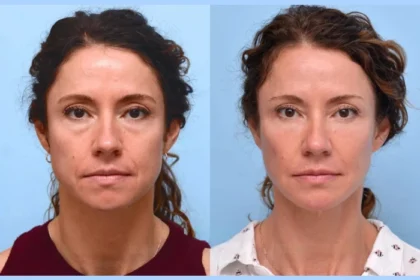In today’s fast-paced corporate world, employee well-being has become a cornerstone of organizational success. Corporate wellness programs, designed to promote health, reduce stress, and enhance productivity, are now integral to many companies’ strategies. As a result, careers in corporate wellness have surged in demand, offering diverse opportunities for professionals passionate about health, human resources, and organizational development. This article delves into the landscape of corporate wellness program jobs, exploring roles, responsibilities, qualifications, and the impact of these careers, followed by answers to frequently asked questions.

The Rise of Corporate Wellness Programs
Corporate wellness programs have evolved from optional perks to essential components of workplace culture. Companies recognize that healthy employees are more engaged, productive, and less likely to face burnout. These programs encompass a range of initiatives, including fitness challenges, mental health support, nutrition workshops, stress management seminars, and health screenings. The growing emphasis on holistic well-being has created a robust job market for professionals who can design, implement, and manage these programs.
The global corporate wellness market is projected to grow significantly, driven by rising healthcare costs, increased awareness of mental health issues, and the need for effective talent retention strategies. This expansion has led to a variety of roles, from wellness coordinators to corporate health consultants, each contributing to employee well-being and organizational success.
Key Roles in Corporate Wellness Programs
1. Wellness Program Coordinator
Wellness coordinators are the backbone of corporate wellness initiatives. They plan and execute programs, coordinate with vendors, and engage employees in activities like fitness classes or health workshops. Responsibilities include creating wellness calendars, tracking participation, and evaluating program effectiveness. Coordinators often work closely with HR teams to align programs with company goals.
Qualifications: A bachelor’s degree in health promotion, human resources, or a related field is typically required. Strong organizational and communication skills are essential, along with knowledge of health and wellness trends.
2. Corporate Wellness Consultant
Consultants offer expert guidance to organizations, designing customized wellness programs tailored to employee needs and company objectives. They assess workplace health risks, recommend strategies, and often collaborate with external providers to deliver services such as gym memberships or mental health resources. Consultants may work independently or for wellness firms.
Qualifications: A background in public health, exercise science, or psychology, often paired with certifications like Certified Wellness Practitioner (CWP) or Certified Corporate Wellness Specialist (CCWS). Analytical skills and experience in program design are critical.
3. Employee Assistance Program (EAP) Specialist
EAP specialists focus on mental health and work-life balance, offering counseling, stress management resources, and crisis intervention. They support employees facing personal or professional challenges, ensuring access to confidential services. This role is increasingly vital as companies prioritize mental health.
Qualifications: A degree in psychology, social work, or counseling, often with licensure (e.g., Licensed Professional Counselor). Empathy, discretion, and strong interpersonal skills are key.
4. Health and Wellness Coach
Wellness coaches work directly with employees, providing one-on-one or group coaching on topics like nutrition, fitness, or stress reduction. They motivate employees to set and achieve health goals, fostering sustainable lifestyle changes. Coaches may also lead workshops or fitness sessions.
Qualifications: Certifications such as ACE Health Coach or Wellcoaches certification, along with a background in fitness, nutrition, or health education. Coaching skills and the ability to inspire are crucial.
5. Wellness Program Manager
Managers oversee the strategic direction of wellness programs, ensuring alignment with organizational goals. They analyze data to measure program impact, manage budgets, and collaborate with leadership to integrate wellness into company culture. This role requires a blend of leadership and technical expertise.
Qualifications: A bachelor’s or master’s degree in health management, business, or a related field, plus experience in program management. Data analysis and leadership skills are essential.
Skills and Certifications for Success
While specific qualifications vary by role, certain skills and credentials are universally valued in corporate wellness careers:
-
Communication: Professionals must engage employees, present ideas to leadership, and collaborate with vendors.
-
Program Design: Creating effective, engaging programs requires creativity and an understanding of health trends.
-
Data Analysis: Measuring program outcomes, such as participation rates or health improvements, is critical for demonstrating value.
-
Empathy and Emotional Intelligence: Supporting employees’ physical and mental health demands sensitivity and understanding.
-
Certifications: Credentials like Certified Health Education Specialist (CHES), Certified Wellness Practitioner (CWP), or fitness certifications (e.g., ACSM, NASM) enhance credibility.
The Impact of Corporate Wellness Jobs
Careers in corporate wellness are rewarding on multiple levels. Professionals in these roles directly improve employees’ quality of life, reducing stress and enhancing health outcomes. Organizations benefit from lower healthcare costs, reduced absenteeism, and improved employee morale. For example, studies show that effective wellness programs can reduce healthcare costs by up to 20% and boost productivity by fostering a positive work environment.
Moreover, these roles offer opportunities for growth and innovation. As companies experiment with virtual wellness programs, wearable health tech, and AI-driven health insights, professionals can explore cutting-edge tools and strategies. The field also allows for specialization in areas such as mental health, fitness, or data-driven wellness solutions.
Challenges in the Field
Despite the rewards, corporate wellness jobs come with their own set of challenges. Engaging a diverse workforce with varying health needs requires creativity and adaptability. Budget constraints can limit the scope of a program, and measuring ROI can be a complex process. Additionally, professionals must stay up-to-date on health trends and regulations, such as HIPAA compliance for the protection of health data.
Career Outlook and Opportunities
The demand for corporate wellness professionals is strong, with the U.S. Bureau of Labor Statistics projecting growth in health education and community health roles. Salaries vary by role and experience, with wellness coordinators earning $45,000–$65,000 annually, while consultants and managers may earn $70,000–$100,000 or more. Opportunities exist in corporations, consulting firms, healthcare providers, and wellness startups.
FAQs About Corporate Wellness Program Jobs
1. What qualifications are needed to start a career in corporate wellness?
Most entry-level roles, like wellness coordinators, require a bachelor’s degree in health promotion, exercise science, or a related field. Certifications like CHES or CWP can enhance prospects. Advanced roles, such as consultants or managers, may require a master’s degree or significant experience.
2. How can someone transition into a corporate wellness career from another field?
Professionals from HR, fitness, or healthcare can transition by earning relevant certifications (e.g., ACE Health Coach) and gaining experience through internships or volunteer roles. Networking with wellness professionals and joining organizations like the National Wellness Institute can also help.
3. What are the most in-demand skills for corporate wellness jobs?
Employers value communication, program design, data analysis, and knowledge of health trends. Emotional intelligence and the ability to motivate employees are also critical, especially for coaching or EAP roles.
4. Are corporate wellness jobs remote or office-based?
Many roles offer hybrid or remote options, especially for consultants or managers. However, coordinators and coaches may need to be on-site for events or workshops, depending on the company’s structure.
5. How do corporate wellness professionals measure program success?
Success is measured through metrics like employee participation rates, health outcomes (e.g., reduced stress or improved fitness), and ROI (e.g., lower healthcare costs). Surveys, health assessments, and data analytics are commonly used tools.
Conclusion
Careers in corporate wellness programs offer a unique blend of health advocacy, organizational strategy, and employee engagement. As companies continue to prioritize well-being, professionals in this field play a pivotal role in shaping healthier, more productive workplaces. Whether you’re drawn to coaching, program management, or consulting, the opportunities are vast and growing. With the right skills, certifications, and passion for health, a career in corporate wellness can be both impactful and fulfilling.



